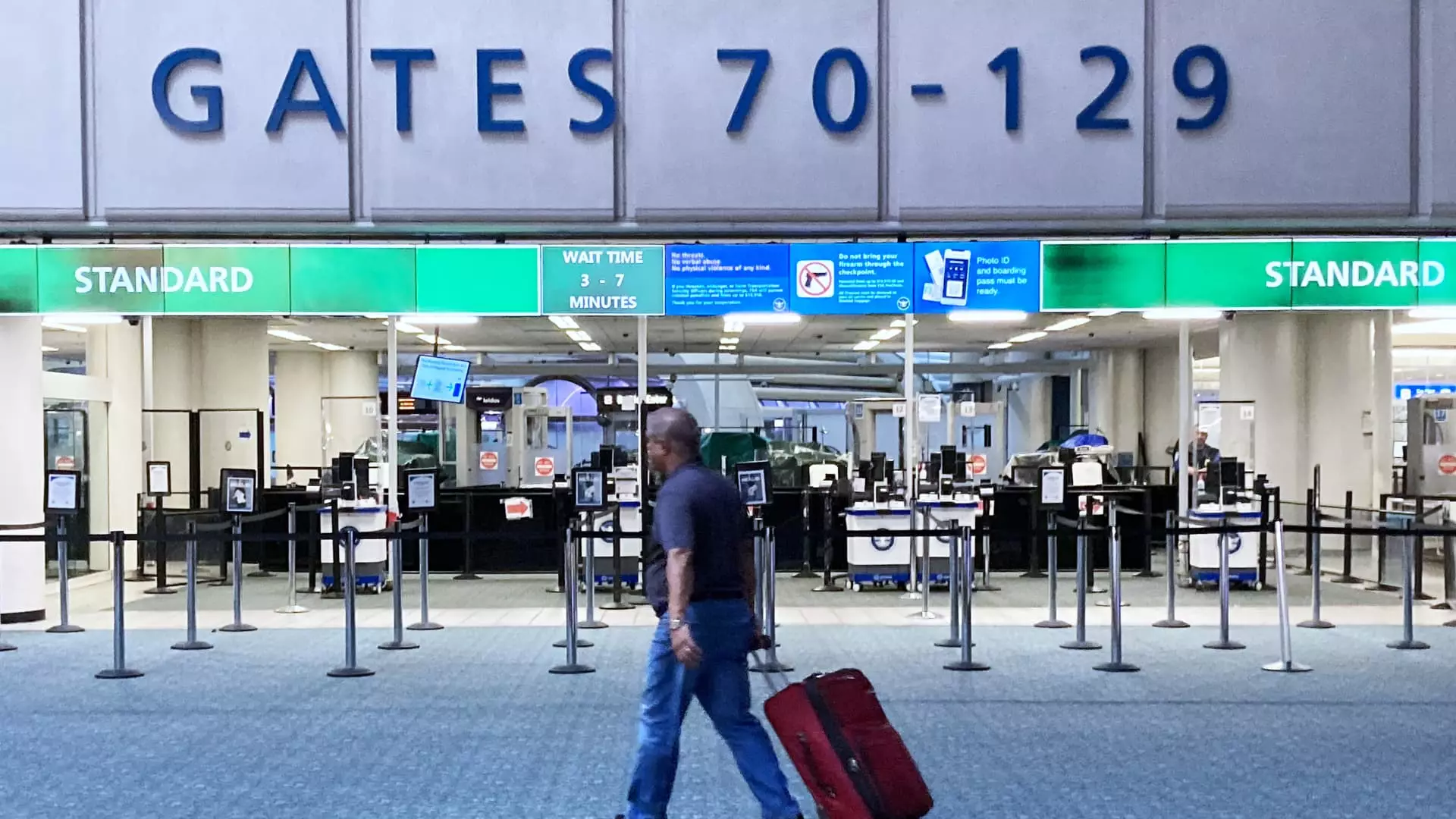As the nation gears up for the bustling holiday travel season, a critical standoff in Congress poses a significant threat: the looming government shutdown. With lawmakers gripping tightly to their opposing views, the failure to agree on a short-term funding bill has left many on edge. Just a few days ago, a proposal endorsed by President-elect Donald Trump was rejected, pushing the prospect of a shutdown closer to reality. If no compromise is made by the anticipated deadline of Saturday at 12:01 a.m. ET, a series of furloughs will begin, affecting hundreds of thousands of federal employees.
One of the most immediate and concerning effects of a shutdown is the potential disruption it could cause to the U.S. travel industry. According to estimates from the U.S. Travel Association, which serves as a representative body for major hotel chains and travel-related businesses, the economic ramifications could reach $1 billion each week during the shutdown. This is particularly alarming given that the travel sector is a vital part of the American economy, and a disruption during the holiday season could have cascading effects for providers and travelers alike.
Geoff Freeman, president of the U.S. Travel Association, expressed skepticism regarding the political maneuvering in Congress, stating, “It’s hard to see how anyone in Congress wins if they force TSA workers, air traffic controllers, and other essential employees to work without pay during one of the busiest travel periods of the year.” This assertion highlights a critical point: the human cost involved in political disputes, especially when the stakes are high for the public.
Despite the impending possibility of a shutdown, commercial airlines have signaled that they will continue their normal operations. Airlines are bracing for a holiday season they anticipate will be the busiest on record. United Airlines, for instance, has forecasted that it will serve nearly 10 million passengers between December 19 and January 6, a marked 12% increase over the prior year.
The Transportation Security Administration (TSA) is also gearing up for a surge in passenger throughput, expecting to screen over 40 million travelers by January 2. However, the crucial role of Transportation Security Officers becomes more complicated under the conditions of a government shutdown. While deemed essential workers, these TSA agents will be required to work without immediate compensation, which presents both a logistical and moral concern as they strive to keep airport operations running smoothly during peak travel times.
Operational Challenges and Historical Context
The lessons of previous government shutdowns are still fresh in the minds of many. The protracted shutdown that lasted more than a month from late 2018 into early 2019 not only disrupted government services but also severely strained operations in the aviation industry. During this time, shortages of air traffic controllers due to callouts led to significant air traffic disruptions across some of the country’s busiest routes.
As the potential for a repeat scenario looms, concerns regarding the operational efficacy of air travel become increasingly pressing. With the Federal Aviation Administration (FAA) still navigating the challenge of leadership instability—following the announcement of the departure of FAA chief Mike Whitaker—air traffic control modernization is at risk of stagnation. Airline executives, including Delta Air Lines’ CEO Ed Bastian, are advocating for the incoming FAA administrator to prioritize revamping air traffic protocols and increasing personnel to prepare for the impending surge in airspace utilization during the holiday period.
A Call for Bipartisanship in Crisis Management
The increasing tensions in Congress suggest a further deterioration of bipartisanship when it is most required. A government shutdown not only threatens economic stability within the travel sector but also poses significant risks to federal employees’ livelihoods. As holiday travel approaches, the implications of political decisions become ever clearer: compromise is not merely desirable; it is essential. The responsibilities that lie within Congress encompass the need to ensure that vital government functions can continue uninterrupted, especially in times that are traditionally characterized by increased public mobility. An urgent reevaluation of priorities is necessary to alleviate the potential fallout from this crisis as the holiday season quickly approaches.

